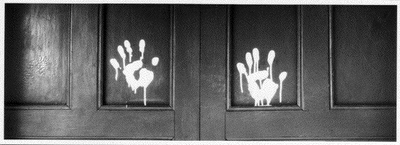 Yesterday on NPR's Morning Edition Steve Inskeep talked with Tom Gjelten about Daniel Ortega's likely victory in Nicaragua's presidential election. Gjelten offered the following version of US foreign policy in Central American during the 1980s:
Yesterday on NPR's Morning Edition Steve Inskeep talked with Tom Gjelten about Daniel Ortega's likely victory in Nicaragua's presidential election. Gjelten offered the following version of US foreign policy in Central American during the 1980s:- "...there was this idea in the United States that Nicaragua was going to become a Soviet military base and this was part of that long ago thing we called 'the Cold War' – remember that? – we were in a global struggle against communism. That was the political background and Daniel Ortega and the Sandinistas, and it looked a lot like Fidel Castro; they wore camouflage uniforms and carried guns and talked about Cuba being an inspiration. Then there was this other thing a, called 'the Reagan Doctrine.' President Reagan was committed at that time to fighting communism in those places where there were local forces who were willing and able to do the actual fighting on the ground. Kind of proxy armies....and in Nicaragua, you had this Contra Army that was willing to fight the Sandinistas, so that was one of the places where the United States decided to make a stand." When asked how this compares to today's "war on terror" Gjelten responds, anti-communism "was the guiding principle of US foreign policy then just as opposing terrorism is now. "
- Gjelten also asserts that "the wars in Central America were not ethnic conflicts....wasn't in any sense an ethnic or religious war. These were wars that were often brutal and a lot of civilians did get killed, but it was fundamentally an economic conflict in each of these countries. The issue was how to distribute wealth, who got the land, it was a haves verses have-not conflict.
- Lastly Gjelten concludes that though "the US won that first round," it "basically just declared victory and walked away from Central America without doing all that much to resolve the underlying issues, which was the lack of equitable economic development, the absence of democratic institutions, the problems of corruption."
Lastly, to conclude that the US "just walked away" is sadly misinformed. True, resolving issues of poverty and corruption, was ignored since the US had "won" the war to keep people impoverished. Just look at the decline of Nicaragua after the Sandinistas were defeated. But the US didn't walk away, it continued to seek further militarization and influence in the region.
For myself, it's hard to decide whether to feel more angry or sad about this slanted, dishonest report from NPR.


1 comment:
Tom's tone of voice in this piece sounded odd to me. He sounded nervous or unsure or under some kind of stress. I think he knew he was lying and didn't like it. Was he under pressure to shill for Reagan and Negroponte?
Post a Comment